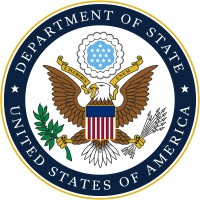
#ExchangeAlumni - Alumni Affairs - State Dept. Company Cyber Security Posture
state.govWelcome, exchange program alumni! We are Alumni Affairs, an office in the Bureau of Educational and Cultural Affairs (ECA) at the U.S. Department of State. We welcome alumni of all U.S. government exchange programs, from Fulbright to Gilman, IVLP, YALI, YSEALI, YLAI, and many more! We offer grant competitions, access to research and funding databases, career development, and other info. While on our page we ask that you follow the Terms of Use (“TOU”), which may be updated by the Department of State from time to time without notice to you. You can review the current version of the TOU at any time here: https://www.state.gov/social-media-terms-of-use/ #ExchangeAlumni operates on the LinkedIn platform. It provides its members with a variety of features, including but not limited to: video and photo sharing, grant competitions, career development, a discussion forum, messaging, and chat. The U.S. Department of State reserves the right to alter the types of features that Alumni Affairs provides at any time with no notice to network members. Member Conduct You understand that all information, data, messages or other materials ("Content"), whether publicly posted or privately transmitted, are the sole responsibility of the person from which such Content originated. This means that you, and not the U.S. Department of State, are entirely responsible for all Content that you post, email, transmit or otherwise make available via the site. The U.S. Department of State does not control the Content posted and, as such, does not guarantee the accuracy, integrity or quality of such Content. ∙ You agree not to use the site to post, email, transmit or otherwise make available any Content that is unlawful, harmful, threatening, abusive, harassing, tortious, defamatory, vulgar, obscene, libelous, invasive of another's privacy, hateful, or racially, ethnically or otherwise objectionable. Read the full member conduct our TOS page: https://www.state.gov/social-media-terms-of-use/
#-AA-SD Company Details
exchangealumni
10,001+ employees
15898
928
International Affairs
state.gov
Scan still pending
#EX_2832736
In-progress
Between 800 and 900
This score is AI-generated and less favored by cyber insurers, who prefer the TPRM score.
 #-AA-SD Global Score
#-AA-SD Global Score.png)

#ExchangeAlumni - Alumni Affairs - State Dept. Company Scoring based on AI Models
| Model Name | Date | Description | Current Score Difference | Score |
|---|---|---|---|---|
| AVERAGE-Industry | 03-12-2025 | This score represents the average cybersecurity rating of companies already scanned within the same industry. It provides a benchmark to compare an individual company's security posture against its industry peers. | N/A | Between 800 and 900 |
#ExchangeAlumni - Alumni Affairs - State Dept. Company Cyber Security News & History
| Entity | Type | Severity | Impact | Seen | Url ID | Details | View |
|---|---|---|---|---|---|---|---|
| US State Department | Breach | 50 | 2 | 7/2024 | DOS002071724 | Link | |
Rankiteo Explanation : Attack limited on finance or reputationDescription: The US State Department experienced a potential risk to its digital diplomacy efforts due to technological challenges posed by adversaries like Russia and China. Although there was no specific cyber attack reported, the need for increased cybersecurity and tech-savvy diplomatic strategies indicates a recognition of potential threats. These threats could impact global technological governance and the credibility of the United States in managing anti-democratic tools, which might lead to loss of influence over digital issues and potential regulatory challenges with emerging technologies like AI. | |||||||
| US State Department | Cyber Attack | 100 | 8 | 7/2024 | DOS445070624 | Link | |
Rankiteo Explanation : Attack that could bring to a warDescription: The US State Department has been intensifying its efforts to address the complex cyber challenges posed by adversarial nations. With the development of a cybersecurity training program for diplomats, the department aims to strengthen its digital diplomacy capabilities. These challenges range from combating Russian election interference to mitigating the influence of Chinese technological dominance in industries including 5G telecommunications. The program, led by cyber ambassador Nathaniel Fick, is deemed critical in preserving the integrity of the open internet and democratic institutions worldwide. It represents a strategic endeavor to reclaim US credibility and fortify its position in global digital governance. | |||||||
| US State Department | Vulnerability | 100 | 8 | 7/2024 | DOS704071524 | Link | |
Rankiteo Explanation : Attack that could bring to a warDescription: The US State Department encountered significant cyber-related vulnerabilities that threatened not just the department's internal data but also the broader diplomatic efforts in countering global tech and cyber challenges. Under the influence of adversaries, notably China and Russia, the department faced pressures on its 5G networks and social media platforms, which had potential for wide-reaching impacts on democracy and international relations. The department's strategy included a cybersecurity training program, revealing an initiative to reinforce tech-savvy diplomacy and reassert US influence in digital domains, acknowledging past governance mistakes in social media that had unintended anti-democratic consequences. | |||||||
#ExchangeAlumni - Alumni Affairs - State Dept. Company Subsidiaries

Welcome, exchange program alumni! We are Alumni Affairs, an office in the Bureau of Educational and Cultural Affairs (ECA) at the U.S. Department of State. We welcome alumni of all U.S. government exchange programs, from Fulbright to Gilman, IVLP, YALI, YSEALI, YLAI, and many more! We offer grant competitions, access to research and funding databases, career development, and other info. While on our page we ask that you follow the Terms of Use (“TOU”), which may be updated by the Department of State from time to time without notice to you. You can review the current version of the TOU at any time here: https://www.state.gov/social-media-terms-of-use/ #ExchangeAlumni operates on the LinkedIn platform. It provides its members with a variety of features, including but not limited to: video and photo sharing, grant competitions, career development, a discussion forum, messaging, and chat. The U.S. Department of State reserves the right to alter the types of features that Alumni Affairs provides at any time with no notice to network members. Member Conduct You understand that all information, data, messages or other materials ("Content"), whether publicly posted or privately transmitted, are the sole responsibility of the person from which such Content originated. This means that you, and not the U.S. Department of State, are entirely responsible for all Content that you post, email, transmit or otherwise make available via the site. The U.S. Department of State does not control the Content posted and, as such, does not guarantee the accuracy, integrity or quality of such Content. ∙ You agree not to use the site to post, email, transmit or otherwise make available any Content that is unlawful, harmful, threatening, abusive, harassing, tortious, defamatory, vulgar, obscene, libelous, invasive of another's privacy, hateful, or racially, ethnically or otherwise objectionable. Read the full member conduct our TOS page: https://www.state.gov/social-media-terms-of-use/
Access Data Using Our API

Get company history
.png)
#-AA-SD Cyber Security News
DARPA Calls on Industry to Assist With Improving, Strengthening DOD Cybersecurity
The Defense Advanced Research Projects Agency announced a Resilient Software Systems Accelerator program to kick-start the widespread ...
The highest-paying jobs in cybersecurity today
After security architects, security engineers receive the second-highest annual cash compensation ($191,000), with a base salary of $168,000.
Are cybersecurity stocks a new safety trade? What the Israel-Iran conflict shows
CrowdStrike and Palo Alto Networks held up better than the overall market and software peers over the past three days.
DSU cybersecurity clinic helps students, small businesses
The clinic allows DSU students to work hands-on with small businesses. It also supports those businesses which might not have the money to hire ...
Can a foreign government hack WhatsApp? A cybersecurity expert explains how that might work
Israeli firms have repeatedly been linked to hacking WhatsApp accounts, most notably through the Pegasus spyware developed by Israeli-based ...
The 10 Hottest Cybersecurity Tools And Products Of 2025 (So Far)
The hottest cybersecurity products of 2025 so far include AI-powered tools and agentic capabilities from Zscaler, CrowdStrike, ...
Italy's Leonardo buys a European cybersecurity company
Italy's Leonardo will soon announce the acquisition of a European cybersecurity company, its chairman told Reuters on Tuesday, ...
Cybersecurity takes a big hit in new Trump executive order
The Trump EO also rolls back requirements that federal agencies adopt products that use encryption schemes that aren't vulnerable to quantum ...
Jamaican government to set up elite cybersecurity unit
The Government of Jamaica plans to bolster its cybersecurity defences with the creation of a cyber incident response team and a security ...

#-AA-SD Similar Companies

U.S. Department of State
The U.S. Department of State is focused on accomplishing America's mission of diplomacy at home and around the world. The U.S. Department of State manages America’s relationships with foreign governments, international organizations, and the people of other countries. U.S. diplomats and Civil Servic

World Health Organization
The World Health Organization's mission: to promote health, keep the world safe, and serve the vulnerable. Working through offices in more than 150 countries, WHO staff work side by side with governments and other partners to ensure the highest attainable level of health for all people. Stay connec

UNHCR, the UN Refugee Agency
UNHCR, the UN Refugee Agency, is a global organisation dedicated to saving lives, protecting rights and building a better future for people forced to flee their homes because of conflict and persecution. We lead international action to protect refugees, forcibly displaced communities and stateless

IOM - UN Migration
Established in 1951, the International Organization for Migration is the leading intergovernmental organization in the field of migration and is committed to the principle that humane and orderly migration benefits migrants and society. IOM works with its partners in the international community to

USAID
USAID is the lead U.S. Government agency that works to end extreme global poverty and enable resilient, democratic societies to realize their potential. U.S. foreign assistance has always had the twofold purpose of furthering America's interests while improving lives in the developing world. USAI

UNDP
The United Nations Development Programme works in nearly 170 countries and territories, helping to achieve the eradication of poverty, and the reduction of inequalities and exclusion. We help countries to develop policies, leadership skills, partnering abilities, institutional capabilities and build

Frequently Asked Questions (FAQ) on Cybersecurity Incidents
#-AA-SD CyberSecurity History Information
Total Incidents: According to Rankiteo, #-AA-SD has faced 3 incidents in the past.
Incident Types: The types of cybersecurity incidents that have occurred include ['Cyber Attack', 'Breach', 'Vulnerability'].
Total Financial Loss: The total financial loss from these incidents is estimated to be {total_financial_loss}.
Cybersecurity Posture: The company's overall cybersecurity posture is described as Welcome, exchange program alumni! We are Alumni Affairs, an office in the Bureau of Educational and Cultural Affairs (ECA) at the U.S. Department of State. We welcome alumni of all U.S. government exchange programs, from Fulbright to Gilman, IVLP, YALI, YSEALI, YLAI, and many more! We offer grant competitions, access to research and funding databases, career development, and other info. While on our page we ask that you follow the Terms of Use (“TOU”), which may be updated by the Department of State from time to time without notice to you. You can review the current version of the TOU at any time here: https://www.state.gov/social-media-terms-of-use/ #ExchangeAlumni operates on the LinkedIn platform. It provides its members with a variety of features, including but not limited to: video and photo sharing, grant competitions, career development, a discussion forum, messaging, and chat. The U.S. Department of State reserves the right to alter the types of features that Alumni Affairs provides at any time with no notice to network members. Member Conduct You understand that all information, data, messages or other materials ("Content"), whether publicly posted or privately transmitted, are the sole responsibility of the person from which such Content originated. This means that you, and not the U.S. Department of State, are entirely responsible for all Content that you post, email, transmit or otherwise make available via the site. The U.S. Department of State does not control the Content posted and, as such, does not guarantee the accuracy, integrity or quality of such Content. ∙ You agree not to use the site to post, email, transmit or otherwise make available any Content that is unlawful, harmful, threatening, abusive, harassing, tortious, defamatory, vulgar, obscene, libelous, invasive of another's privacy, hateful, or racially, ethnically or otherwise objectionable. Read the full member conduct our TOS page: https://www.state.gov/social-media-terms-of-use/.
Detection and Response: The company detects and responds to cybersecurity incidents through {description_of_detection_and_response_process}.
Incident Details
Incident 1: Ransomware Attack
Title: {Incident_Title}
Description: {Brief_description_of_the_incident}
Date Detected: {Detection_Date}
Date Publicly Disclosed: {Disclosure_Date}
Date Resolved: {Resolution_Date}
Type: {Type_of_Attack}
Attack Vector: {Attack_Vector}
Vulnerability Exploited: {Vulnerability}
Threat Actor: {Threat_Actor}
Motivation: {Motivation}
Incident 2: Data Breach
Title: {Incident_Title}
Description: {Brief_description_of_the_incident}
Date Detected: {Detection_Date}
Date Publicly Disclosed: {Disclosure_Date}
Date Resolved: {Resolution_Date}
Type: {Type_of_Attack}
Attack Vector: {Attack_Vector}
Vulnerability Exploited: {Vulnerability}
Threat Actor: {Threat_Actor}
Motivation: {Motivation}
Common Attack Types: As of now, the company has not encountered any reported incidents involving common cyberattacks.
Identification of Attack Vectors: The company identifies the attack vectors used in incidents through {description_of_identification_process}.
Impact of the Incidents
Incident 1: Ransomware Attack
Financial Loss: {Financial_Loss}
Data Compromised: {Data_Compromised}
Systems Affected: {Systems_Affected}
Downtime: {Downtime}
Operational Impact: {Operational_Impact}
Conversion Rate Impact: {Conversion_Rate_Impact}
Revenue Loss: {Revenue_Loss}
Customer Complaints: {Customer_Complaints}
Brand Reputation Impact: {Brand_Reputation_Impact}
Legal Liabilities: {Legal_Liabilities}
Identity Theft Risk: {Identity_Theft_Risk}
Payment Information Risk: {Payment_Information_Risk}
Incident 2: Data Breach
Financial Loss: {Financial_Loss}
Data Compromised: {Data_Compromised}
Systems Affected: {Systems_Affected}
Downtime: {Downtime}
Operational Impact: {Operational_Impact}
Conversion Rate Impact: {Conversion_Rate_Impact}
Revenue Loss: {Revenue_Loss}
Customer Complaints: {Customer_Complaints}
Brand Reputation Impact: {Brand_Reputation_Impact}
Legal Liabilities: {Legal_Liabilities}
Identity Theft Risk: {Identity_Theft_Risk}
Payment Information Risk: {Payment_Information_Risk}
Average Financial Loss: The average financial loss per incident is {average_financial_loss}.
Commonly Compromised Data Types: The types of data most commonly compromised in incidents are {list_of_commonly_compromised_data_types}.
Incident 1: Ransomware Attack
Entity Name: {Entity_Name}
Entity Type: {Entity_Type}
Industry: {Industry}
Location: {Location}
Size: {Size}
Customers Affected: {Customers_Affected}
Incident 2: Data Breach
Entity Name: {Entity_Name}
Entity Type: {Entity_Type}
Industry: {Industry}
Location: {Location}
Size: {Size}
Customers Affected: {Customers_Affected}
Response to the Incidents
Incident 1: Ransomware Attack
Incident Response Plan Activated: {Yes/No}
Third Party Assistance: {Yes/No}
Law Enforcement Notified: {Yes/No}
Containment Measures: {Containment_Measures}
Remediation Measures: {Remediation_Measures}
Recovery Measures: {Recovery_Measures}
Communication Strategy: {Communication_Strategy}
Adaptive Behavioral WAF: {Adaptive_Behavioral_WAF}
On-Demand Scrubbing Services: {On_Demand_Scrubbing_Services}
Network Segmentation: {Network_Segmentation}
Enhanced Monitoring: {Enhanced_Monitoring}
Incident 2: Data Breach
Incident Response Plan Activated: {Yes/No}
Third Party Assistance: {Yes/No}
Law Enforcement Notified: {Yes/No}
Containment Measures: {Containment_Measures}
Remediation Measures: {Remediation_Measures}
Recovery Measures: {Recovery_Measures}
Communication Strategy: {Communication_Strategy}
Adaptive Behavioral WAF: {Adaptive_Behavioral_WAF}
On-Demand Scrubbing Services: {On_Demand_Scrubbing_Services}
Network Segmentation: {Network_Segmentation}
Enhanced Monitoring: {Enhanced_Monitoring}
Incident Response Plan: The company's incident response plan is described as {description_of_incident_response_plan}.
Third-Party Assistance: The company involves third-party assistance in incident response through {description_of_third_party_involvement}.
Data Breach Information
Incident 2: Data Breach
Type of Data Compromised: {Type_of_Data}
Number of Records Exposed: {Number_of_Records}
Sensitivity of Data: {Sensitivity_of_Data}
Data Exfiltration: {Yes/No}
Data Encryption: {Yes/No}
File Types Exposed: {File_Types}
Personally Identifiable Information: {Yes/No}
Prevention of Data Exfiltration: The company takes the following measures to prevent data exfiltration: {description_of_prevention_measures}.
Handling of PII Incidents: The company handles incidents involving personally identifiable information (PII) through {description_of_handling_process}.
Ransomware Information
Incident 1: Ransomware Attack
Ransom Demanded: {Ransom_Amount}
Ransom Paid: {Ransom_Paid}
Ransomware Strain: {Ransomware_Strain}
Data Encryption: {Yes/No}
Data Exfiltration: {Yes/No}
Ransom Payment Policy: The company's policy on paying ransoms in ransomware incidents is described as {description_of_ransom_payment_policy}.
Data Recovery from Ransomware: The company recovers data encrypted by ransomware through {description_of_data_recovery_process}.
Regulatory Compliance
Incident 1: Ransomware Attack
Regulations Violated: {Regulations_Violated}
Fines Imposed: {Fines_Imposed}
Legal Actions: {Legal_Actions}
Regulatory Notifications: {Regulatory_Notifications}
Incident 2: Data Breach
Regulations Violated: {Regulations_Violated}
Fines Imposed: {Fines_Imposed}
Legal Actions: {Legal_Actions}
Regulatory Notifications: {Regulatory_Notifications}
Regulatory Frameworks: The company complies with the following regulatory frameworks regarding cybersecurity: {list_of_regulatory_frameworks}.
Ensuring Regulatory Compliance: The company ensures compliance with regulatory requirements through {description_of_compliance_measures}.
Lessons Learned and Recommendations
Incident 1: Ransomware Attack
Lessons Learned: {Lessons_Learned}
Incident 2: Data Breach
Lessons Learned: {Lessons_Learned}
Incident 1: Ransomware Attack
Recommendations: {Recommendations}
Incident 2: Data Breach
Recommendations: {Recommendations}
Key Lessons Learned: The key lessons learned from past incidents are {list_of_key_lessons_learned}.
Implemented Recommendations: The company has implemented the following recommendations to improve cybersecurity: {list_of_implemented_recommendations}.
References
Additional Resources: Stakeholders can find additional resources on cybersecurity best practices at {list_of_additional_resources}.
Investigation Status
Incident 1: Ransomware Attack
Investigation Status: {Investigation_Status}
Incident 2: Data Breach
Investigation Status: {Investigation_Status}
Communication of Investigation Status: The company communicates the status of incident investigations to stakeholders through {description_of_communication_process}.
Stakeholder and Customer Advisories
Incident 1: Ransomware Attack
Stakeholder Advisories: {Stakeholder_Advisories}
Customer Advisories: {Customer_Advisories}
Incident 2: Data Breach
Stakeholder Advisories: {Stakeholder_Advisories}
Customer Advisories: {Customer_Advisories}
Advisories Provided: The company provides the following advisories to stakeholders and customers following an incident: {description_of_advisories_provided}.
Initial Access Broker
Incident 1: Ransomware Attack
Entry Point: {Entry_Point}
Reconnaissance Period: {Reconnaissance_Period}
Backdoors Established: {Backdoors_Established}
High Value Targets: {High_Value_Targets}
Data Sold on Dark Web: {Yes/No}
Incident 2: Data Breach
Entry Point: {Entry_Point}
Reconnaissance Period: {Reconnaissance_Period}
Backdoors Established: {Backdoors_Established}
High Value Targets: {High_Value_Targets}
Data Sold on Dark Web: {Yes/No}
Monitoring and Mitigation of Initial Access Brokers: The company monitors and mitigates the activities of initial access brokers through {description_of_monitoring_and_mitigation_measures}.
Post-Incident Analysis
Incident 1: Ransomware Attack
Root Causes: {Root_Causes}
Corrective Actions: {Corrective_Actions}
Incident 2: Data Breach
Root Causes: {Root_Causes}
Corrective Actions: {Corrective_Actions}
Post-Incident Analysis Process: The company's process for conducting post-incident analysis is described as {description_of_post_incident_analysis_process}.
Corrective Actions Taken: The company has taken the following corrective actions based on post-incident analysis: {list_of_corrective_actions_taken}.
Additional Questions
General Information
Ransom Payment History: The company has {paid/not_paid} ransoms in the past.
Last Ransom Demanded: The amount of the last ransom demanded was {last_ransom_amount}.
Last Attacking Group: The attacking group in the last incident was {last_attacking_group}.
Incident Details
Most Recent Incident Detected: The most recent incident detected was on {most_recent_incident_detected_date}.
Most Recent Incident Publicly Disclosed: The most recent incident publicly disclosed was on {most_recent_incident_publicly_disclosed_date}.
Most Recent Incident Resolved: The most recent incident resolved was on {most_recent_incident_resolved_date}.
Impact of the Incidents
Highest Financial Loss: The highest financial loss from an incident was {highest_financial_loss}.
Most Significant Data Compromised: The most significant data compromised in an incident was {most_significant_data_compromised}.
Most Significant System Affected: The most significant system affected in an incident was {most_significant_system_affected}.
Response to the Incidents
Third-Party Assistance in Most Recent Incident: The third-party assistance involved in the most recent incident was {third_party_assistance_in_most_recent_incident}.
Containment Measures in Most Recent Incident: The containment measures taken in the most recent incident were {containment_measures_in_most_recent_incident}.
Data Breach Information
Most Sensitive Data Compromised: The most sensitive data compromised in a breach was {most_sensitive_data_compromised}.
Number of Records Exposed: The number of records exposed in the most significant breach was {number_of_records_exposed}.
Ransomware Information
Highest Ransom Demanded: The highest ransom demanded in a ransomware incident was {highest_ransom_demanded}.
Highest Ransom Paid: The highest ransom paid in a ransomware incident was {highest_ransom_paid}.
Regulatory Compliance
Highest Fine Imposed: The highest fine imposed for a regulatory violation was {highest_fine_imposed}.
Most Significant Legal Action: The most significant legal action taken for a regulatory violation was {most_significant_legal_action}.
Lessons Learned and Recommendations
Most Significant Lesson Learned: The most significant lesson learned from past incidents was {most_significant_lesson_learned}.
Most Significant Recommendation Implemented: The most significant recommendation implemented to improve cybersecurity was {most_significant_recommendation_implemented}.
References
Most Recent Source: The most recent source of information about an incident is {most_recent_source}.
Most Recent URL for Additional Resources: The most recent URL for additional resources on cybersecurity best practices is {most_recent_url}.
Investigation Status
Current Status of Most Recent Investigation: The current status of the most recent investigation is {current_status_of_most_recent_investigation}.
Stakeholder and Customer Advisories
Most Recent Stakeholder Advisory: The most recent stakeholder advisory issued was {most_recent_stakeholder_advisory}.
Most Recent Customer Advisory: The most recent customer advisory issued was {most_recent_customer_advisory}.
Initial Access Broker
Most Recent Entry Point: The most recent entry point used by an initial access broker was {most_recent_entry_point}.
Most Recent Reconnaissance Period: The most recent reconnaissance period for an incident was {most_recent_reconnaissance_period}.
Post-Incident Analysis
Most Significant Root Cause: The most significant root cause identified in post-incident analysis was {most_significant_root_cause}.
Most Significant Corrective Action: The most significant corrective action taken based on post-incident analysis was {most_significant_corrective_action}.
What Do We Measure?
















Every week, Rankiteo analyzes billions of signals to give organizations a sharper, faster view of emerging risks. With deeper, more actionable intelligence at their fingertips, security teams can outpace threat actors, respond instantly to Zero-Day attacks, and dramatically shrink their risk exposure window.
These are some of the factors we use to calculate the overall score:
Identify exposed access points, detect misconfigured SSL certificates, and uncover vulnerabilities across the network infrastructure.
Gain visibility into the software components used within an organization to detect vulnerabilities, manage risk, and ensure supply chain security.
Monitor and manage all IT assets and their configurations to ensure accurate, real-time visibility across the company's technology environment.
Leverage real-time insights on active threats, malware campaigns, and emerging vulnerabilities to proactively defend against evolving cyberattacks.




